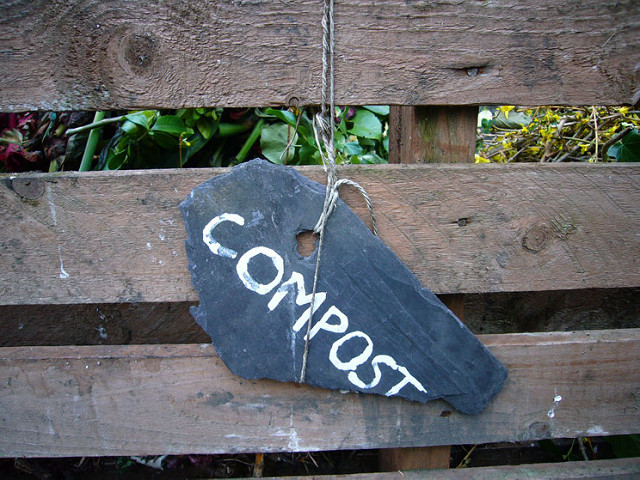Food Co-op and Downtown Greens re-think food waste
Part of the reason food co-ops are seeing such a resurgence around the country is that people are starting to look at the everyday task of buying groceries and food in new ways.
While the Fredericksburg Food Co-op works to build a free-standing grocery store focused on sustainable, natural, wholesome foods, the co-op’s values also extend to helping our community explore new ways to solve a problem that goes hand-in-hand with the purchase of food: food waste.
Partners in combatting waste
The great thing about the Fredericksburg community is that there are so many like-minded organizations whose missions complement ours.
We are thankful to be working with one of those organizations—Downtown Greens—to help us educate our members and the wider community on how to better deal with food waste.
Downtown Greens is a nonprofit community greenspace that maintains 2.8 acres of urban gardens, located at 206 Charles St. in Downtown Fredericksburg.
Environmental stewardship is a major part of Downtown Greens’ mission, which it promotes by using sustainable gardening methods, teaching children through a weekly Garden Club, raising bees and more.
This year, Downtown Greens has helped the Fredericksburg Food Co-op hold more environmentally responsible events by making a special effort to help us manage our food waste.
At February’s screening of “Dirt! The Movie” and our March program with Dr. Neal Barnard, Downtown Greens was on-hand to collect food waste and compostable serving-ware.
The materials they collect go into their composting operation, and will eventually end up nourishing the gardens in this unique urban greenspace.
Building awareness for landfill alternatives
Downtown Greens Executive Director Sarah Perry points out that composting isn’t the main part of her group’s mission, but it’s an integral component of the sustainable gardening practices Downtown Greens uses.
She and others in the community, including the Fredericksburg Regional Climate, Environment and Resilience (CLEAR) group, have recently started talking about the need for more options for larger-scale composting.
While a backyard compost pile, or even the piles at Downtown Greens, are an excellent way to avoid throwing food scraps into the landfill, Perry points out that larger commercial composting facilities are necessary to compost many of the materials manufacturers are selling as “compostable,” including packaging, utensils and serving-ware.
“What we are throwing away in our trash cans every day, 35 percent of that can be composted in a commercial composting facility,” she said, adding that residents who feel similarly should speak with their local elected officials to raise awareness.
But just like recycling took outreach and education to catch on, composting also requires those same steps, and Downtown Greens’ work to collect and compost food waste at Fredericksburg Food Co-op events is a part of that awareness work.
Perry said her group places labeled buckets for compost collection at various spots at these events. Signs stating that everything is compostable are there to remind attendees that it’s not just the food, but also the serving-ware, that can be composted.
“That general desire to be eco-friendly and conserve resources is something that is shared between the co-op values and our organization,” Perry said. “We hope this opens people’s eyes to the opportunity we have to avoid sending a significant amount of waste to our landfills.”
Published March 20, 2018

